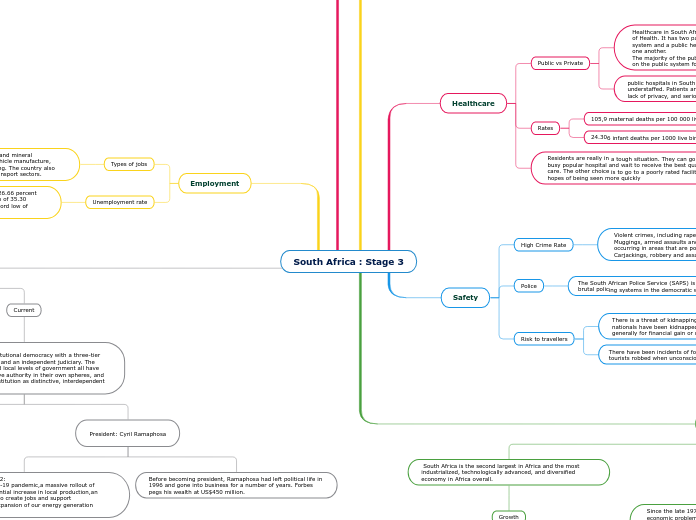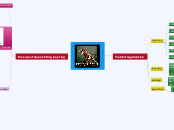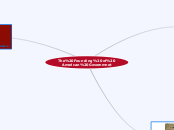South Africa : Stage 3
Government
Current
South Africa is a constitutional democracy with a three-tier system of government and an independent judiciary. The national, provincial and local levels of government all have legislative and executive authority in their own spheres, and are defined in the Constitution as distinctive, interdependent and interrelated.
President: Cyril Ramaphosa
Before becoming president, Ramaphosa had left political life in 1996 and gone into business for a number of years. Forbes pegs his wealth at US$450 million.
Issues of focus for 2022:
overcoming the COVID-19 pandemic,a massive rollout of infrastructure,a substantial increase in local production,an employment stimulus to create jobs and support livelihoods,the rapid expansion of our energy generation capacity.
the executive (the president and cabinet), based in Pretoriathe legislature (parliament), based in Cape Townan independent judiciary (the courts), based in Bloemfontein
History
The country became a fully sovereign nation state within the British Empire, in 1934 following the enactment of the Status of the Union Act. The monarchy came to an end on 31 May 1961. There was a constitution written.
In addition to providing for the already established positions of president and prime minister, the constitution gave Coloureds and Asians some voting rights.
South Africa’s original constitution, the British Parliament’s South Africa Act of 1909, united two former British colonies, the Cape of Good Hope and Natal, with two former Boer (Dutch) republics, the Transvaal and Orange Free State.
The Republic of South Africa Constitution Act of 1961 transformed the country from a dominion within the British Commonwealth into an independent republic.
South Africa’s political development was shaped by its colonial past and the implementation of apartheid policies by the white minority. After widespread protest and social unrest, a new nonracial interim constitution was adopted in 1993 and took effect in 1994.
Nelson Mandela was sworn in as President of the first democratically elected South African government on 10 May 1994, after spending 27 years as a political prisoner. The Constitutional Court approved South Africa’s Constitution – or supreme law of the land – on 4 December 1996. It took effect on 4 February 1997.
Employment
Unemployment rate
Unemployment Rate in South Africa averaged 26.66 percent from 2000 until 2022, reaching an all time high of 35.30 percent in the fourth quarter of 2021 and a record low of 21.50 percent in the fourth quarter of 2008.
Types of jobs
South Africa is a world leader in mining and mineral processing, other key sectors include vehicle manufacture, agriculture, financial services and banking. The country also has well developed legal, energy and transport sectors.
Education
Teaching is at the core of the learning crisis. South Africa needs 25,000 new teachers each year, but only 6,000 teachers are trained annually.
Less than 25% of mathematics teachers are competent at the level they teach.
A high level of absenteeism is another major problem, as well as overcrowding and high student to teacher ratios in the classrooms
In July 2021, UNICEF published a report on education in South Africa which estimated that learners were anywhere from 75% to a full school year behind and about 500,000 learners had dropped out of school at that point.
Children in the top 200 schools achieve more distinctions than children in the next 6,600 schools combined
The gap in test scores between the top 20% of schools and the other 80% is wider than any other country in the world.
The system is divided into 3 strata, namely general education and training, further education and training, and higher education and training. The process is compulsory through to grade 9, and spans 12 grades in total.
The following 3 years are spent in middle school. Subjects taught continue to be academic with a flavor of vocational training. Completion brings with it a basic education and training certificate.
Secondary education is administered through a network of previously mainly-white government schools and private colleges. Standards are generally high. Unfortunately school fees and tuition fees respectively debar the poorest from attending.
South Africa’s education system ranks 75th out of 76 mainly rich countries.
Economy
The economy of South Africa was revolutionized in the late 19th century when diamonds and gold were discovered there.
South Africa is rich in a variety of minerals. In addition to diamonds and gold, the country also contains reserves of iron ore, platinum, manganese, chromium, copper, uranium, silver, beryllium, and titanium.
Since the late 1970s, South Africa has had continuing economic problems, initially because its apartheid policies led many countries to withhold foreign investment and to impose increasingly severe trade sanctions against it.
In 1996 the government created a five-year plan—Growth, Employment, and Redistribution (GEAR)—that focused on privatization and the removal of exchange controls
South Africa is the second largest in Africa and the most industrialized, technologically advanced, and diversified economy in Africa overall.
Growth
The South African economy began to slow from 2017 through 2019 and turned negative in 2020. Growth resumed in 2021. During the same half-decade, economic freedom has declined
South Africa has a highly developed economy and an advanced infrastructure. In addition to being one of the world’s largest exporters of gold, platinum, and other natural resources, it has well-established financial, legal, communications, energy, and transport sectors and the continent’s largest stock exchange.
Safety
Risk to travellers
There have been incidents of food or drink being drugged and tourists robbed when unconscious.
There is a threat of kidnapping across South Africa. Foreign nationals have been kidnapped in the past. Kidnappings are generally for financial gain or motivated by criminality.
Police
The South African Police Service (SAPS) is one of the most brutal policing systems in the democratic world.
Former police officers say in the first five years of democracy, there were improvements in policing, including a clear focus on community policing, building community relations, demilitarization, and human rights training. But from 2000 on, everything changed.
More than 42,000 criminal complaints were made against the police between 2012 and 2019, including rape, killings, and torture, according to the Independent Police Investigative Directorate (IPID), a government watchdog body.
High Crime Rate
Violent crimes, including rape and murder, occur frequently. Muggings, armed assaults and theft are also frequent, often occurring in areas that are popular among tourists. Carjackings, robbery and assault also occur.
A new report ranks South Africa as the 19th highest in the world for organised crimes. The findings show an almost 40% increase in murders in the past decade. They also suggest South Africa has one of the most illicit markets in the world.
Healthcare
Residents are really in a tough situation. They can go to a busy popular hospital and wait to receive the best quality of care. The other choice is to go to a poorly rated facility in hopes of being seen more quickly
Rates
24.306 infant deaths per 1000 live births
105,9 maternal deaths per 100 000 live births
Public vs Private
public hospitals in South Africa are underfunded and understaffed. Patients are frustrated by long waiting times, a lack of privacy, and serious overcrowding.
South Africa's private hospitals are also home to the country's best doctors. These facilities can offer higher wages and better benefits from the public system hospitals.
Healthcare in South Africa is administered by the Department of Health. It has two parallel systems. A private healthcare system and a public healthcare system operate in tandem with one another.
The majority of the public, up to 80% of the population, relies on the public system for their care.
Human Rights
Violations
Gender-based violence.Sexual and reproductive rights.Right to education.Right to health.Rights to water and sanitation.Refugees' and migrants' rights.Excessive use of force.Right to life and security of the person.
In terms of the Bill of Rights everyone has a right to life, equality and human dignity. All persons have a right to citizenship and security. Persons and groups are entitled to freedom of assembly, association, belief and opinion, and expression.









